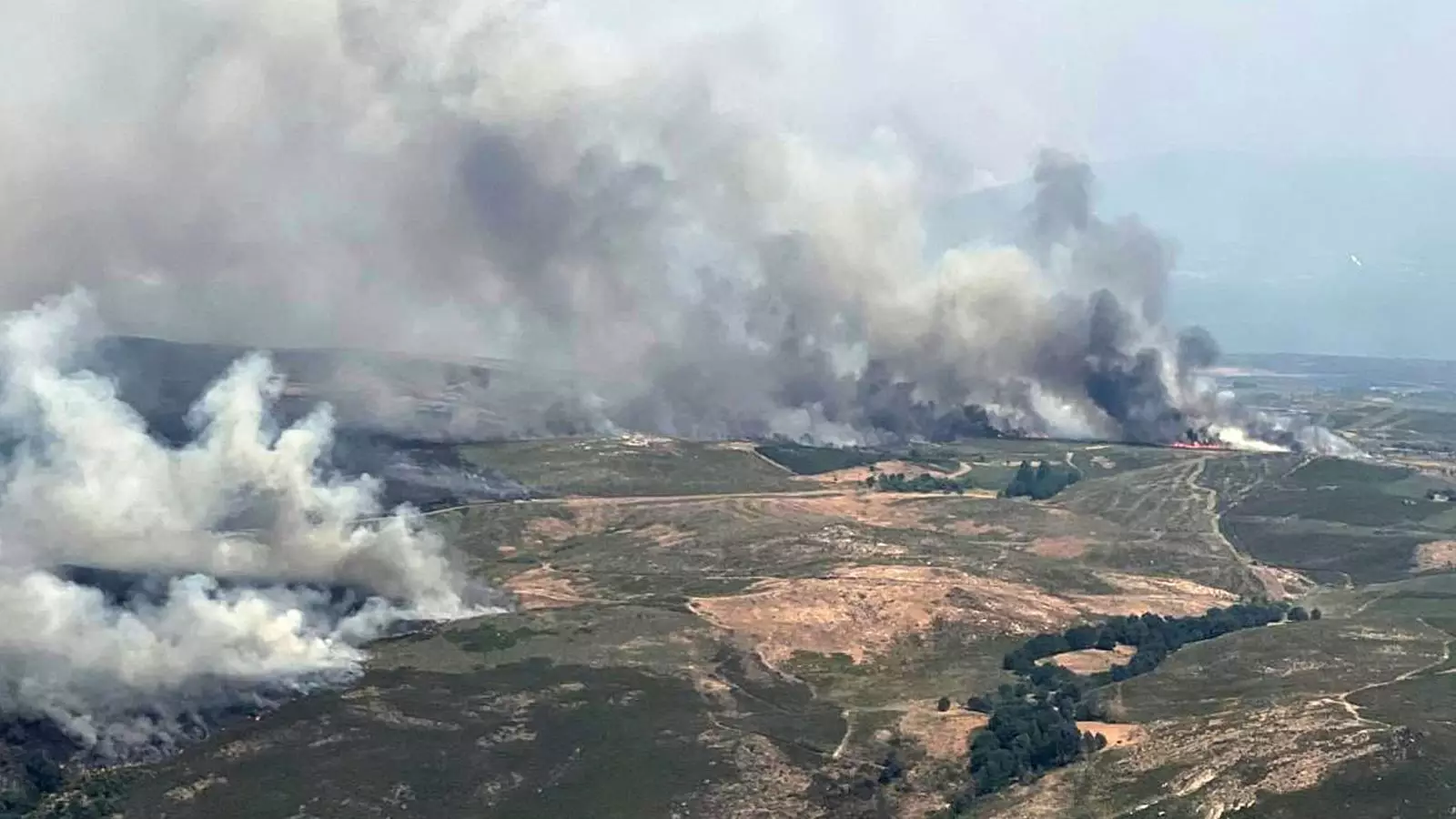In recent weeks, the skies over the UK have been tinged with a haze that seems to whisper of a new normal—a normal shaped by escalating wildfires in Southern Europe, Saharan dust storms, and an increasingly unstable climate. While some might dismiss these phenomena as seasonal anomalies or mere background noise, they are, in reality, stark signs of a planetary crisis that demands our full attention. The smoke drifting across the English Channel does more than obscure our sunsets; it symbolizes the dangerous ripple effects of climate mismanagement and a global system teetering on the brink of chaos. We can’t afford to ignore the mounting evidence that human recklessness—rapid fossil fuel consumption, deforestation, and emissions—has irrevocably altered the natural balance.
This haze, reportedly harmless in terms of air quality, still impacts us visually and emotionally. The vibrant reds and oranges of sunsets become more intense, almost hypnotic in their beauty—yet, beneath that aesthetic allure lies a sobering truth. Nature’s signals are blaring, warning us that our environment is fraying at the edges. The wildfires, raging with destructive fury across Spain, Portugal, and other parts of Southern Europe, are no longer occasional disasters but part of a broader pattern of ecological destabilization. When nearly an entire country’s landscape is reduced to ash, and the death toll rises, it becomes painfully clear: climate change is no longer a distant threat—it is an immediate crisis, and we are the architects of this chaos.
The Illusion of Control and the Reality of Consequences
Despite technological advances and global cooperation, our response to these catastrophes remains reactive and often superficial. Governments offer relief packages and emergency measures, but these are akin to applying bandages to a gaping wound. The core issue—our extractive economy built on fossil fuels—continues to accelerate, reinforcing a dangerous illusion of control. The wildfires are the symptom, not the cause, of a system that prioritizes short-term gains over long-term sustainability. This pattern exposes an uncomfortable truth: we are not in control. Nature is reminding us of our vulnerability and our responsibility.
The phenomena like Saharan dust and wildfire smoke reaching Europe and the UK highlight the interconnectedness of global ecosystems. These are not isolated events but interconnected strands in the web of climate chaos. While the scientific explanation involving Rayleigh and Mie scattering offers a fascinating glimpse into atmospheric optics, the bigger picture should compel us to look at the systemic failures fueling these events. The relentless pursuit of industrial growth, coupled with inadequate policy responses and dismissive public attitudes, ensures that such disasters will worsen unless drastic, intentional change is enacted.
The Dangerous Complacency and a Call for Ethical Urgency
It is easy to fall into complacency—accepting these natural spectacles as inevitable or transient. Yet, this complacency is precisely what fuels further destruction. Letting wildfires become just another summer headline diverts attention from the urgent need to overhaul our relationship with nature. We must recognize that the environmental costs are social, economic, and moral as well. The increasing frequency and intensity of wildfires threaten our communities, ecology, and future generations, especially when wealthier nations and corporations continue to prioritize profit over planet.
From a liberal centrist perspective, there is a moral imperative to advocate for stronger climate policies, equitable resource distribution, and investments in renewable energy. These are not just political points—they are ethical necessities. Our failure to act decisively betrays a basic lack of empathy and responsibility. We cannot continue to enjoy the comforts of modern living while turning a blind eye to the destruction unfolding elsewhere.
Addressing climate chaos requires a fundamental shift in the way we view progress and stewardship. It demands courage—an acknowledgment that our current path is unsustainable and that true progress hinges on shared responsibility, innovation, and a willingness to confront uncomfortable truths. Wildfires and haze should be a wake-up call—not another passing event—to forge a more just, sustainable, and resilient future.


Leave a Reply